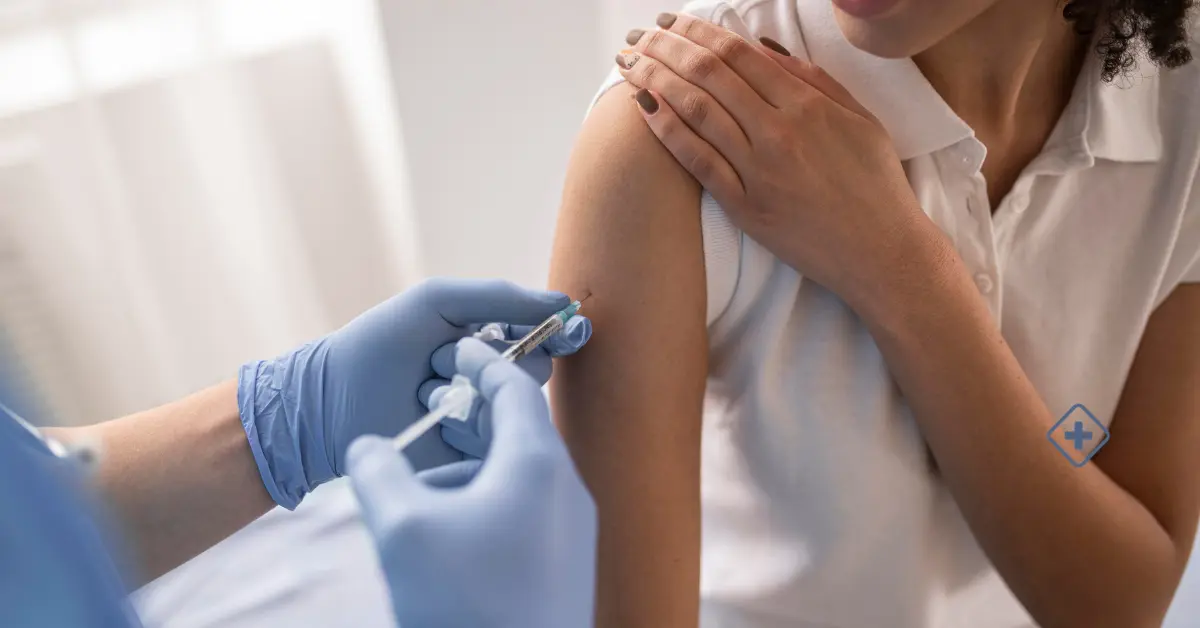
HPV infection: Human Papillomavirus (HPV)
Most people with HPV infection do not show symptoms, making detection difficult.

The Human Papillomavirus (HPV) is a collection of over 100 related viruses that can infect humans. These viruses are prevalent and can affect different body parts, including the skin and mucous membranes (warts).
HPV infection has various strains, some of which manifest as warts, while others pose a significant risk by contributing to the development of different types of cancer. Prevention and early detection are crucial in addressing this complex health issue.
How is HPV transmitted?
HPV infection typically occurs when the virus enters the body, often through a cut, abrasions, or tiny tears in the skin. The primary mode of transmission is direct skin-to-skin contact.
It can also spread through direct contact with warts or by touching something that has been in contact with a wart.
Symptoms of HPV
In most cases, the immune system overcomes HPV before it causes warts. The appearance of warts varies depending on the type of HPV involved.
-
Genital warts appear as flat lesions, small cauliflower-like bumps, or stem-like protrusions. In women, they mainly occur on the vulva but can also be found near the anus, cervix, or vagina. In men, they are located on the penis, scrotum, or around the anus. Genital warts usually do not cause discomfort, but can lead to itching or sensitivity.
-
Common warts are rough, raised bumps, typically on the hands and fingers. They are primarily unsightly, but can be painful or prone to injury or bleeding.
-
Plantar warts are hard, grainy bumps that often appear on the heels or the balls of the feet and can be uncomfortable.
-
Flat warts are flat, slightly raised lesions that can appear on various body parts. In children, they are standard on the face, while in men, they often occur in the beard area, and in women, on the legs.
It's important to remember that these warts might not appear immediately after the initial infection, making early identification more challenging.
The lack of symptoms can be misleading, as it doesn't guarantee the absence of internal effects. Therefore, consulting a healthcare professional, such as a Gynecologist, is recommended.
How do I know if I have HPV?
Most people with HPV do not show symptoms, making detection difficult. For those with visible genital warts, diagnosis can be based on a medical evaluation.
For high-risk HPV testing, screening tests such as the Pap smear, biopsies, and HPV testing may be conducted, following medical guidelines and age considerations.
Does HPV cause Cancer?
Not directly, but certain types of HPV, known as high-risk HPV, are associated with an increased risk of developing cancer.
These can lead to cancers of the cervix, anus, penis, vagina, vulva, and mouth/throat. It's important to note that most people with HPV will not develop cancer, but taking precautions to reduce the risk is essential.
Does this virus cause health complications?
HPV is extremely common, with most sexually active individuals likely to contract it at some point in their lives.
Fortunately, most HPV infections do not lead to serious health problems and resolve on their own. However, following ObGyn's advice for monitoring and preventing long-term health issues is crucial.
Risk factors that can increase the likelihood of HPV infection include:
-
Age: While common warts are frequent in children, genital warts are more prevalent in teenagers and young adults.
-
Weakened immune systems: Individuals with compromised immune systems due to HIV, AIDS, or post-transplant immunosuppressive medications face a higher risk of HPV infection.
-
Damaged skin: Broken or open skin areas are more susceptible to common warts.
-
Personal contact: Touching warts or not using protection in HPV-exposed environments, like communal showers or pools, increases the risk of infection.
Can HPV be cured?
Currently, there is no specific cure for HPV, but most infections resolve on their own without treatment. Treatment focuses on managing symptoms, such as genital warts, and preventing serious health issues, like Cancer.
Preventing HPV
HPV prevention involves several key strategies, including:
-
Practicing safe sex, including condom use.
-
Getting vaccinated against HPV, especially at younger ages.
-
Undergoing regular screening tests, following medical advice.
-
Maintaining a healthy lifestyle and avoiding known risk factors, such as smoking.
HPV Vaccine
HPV vaccines are designed to prevent infection with the most common and high-risk HPV types. These vaccines are safe and effective.
-
It's recommended that all girls and boys receive two doses of the HPV vaccine between ages 9 and 12.
-
Teenagers and young adults aged 13 to 26 who haven't been vaccinated or completed the series should get vaccinated promptly.
-
The American Cancer Society advises against vaccination for those over 26.
Men who haven't been previously vaccinated may receive the vaccine up to age 21, while women can get it up to age 26 if they didn't receive it during childhood.
When to See a Doctor
Whether you have concerns related to HPV or want to ensure your gynecological health, scheduling regular visits with an ObGyn is essential.
These appointments allow for early detection and proper management of concerns and are vital in preventing future health issues.
At BlueNetHospitals, we understand the importance of quality medical follow-up and have a highly qualified medical team to address your prevention and diagnostic needs. Your health is in good hands with us.
BlueNetHospitals
BlueNet Hospitals - Blue Net Hospitals
Health Library
Gynecology and Obstetrics

Polycystic Ovary Syndrome
The exact causes of PCOS are not fully understood, but it is believed to be a combination of genetic and hormonal factors
Pap Smear
The Pap Smear is an essential procedure for the early prevention and detection of Cervical Cancer
Managing High-Risk Pregnancy
In high-risk pregnancy, there's an increased likelihood of encountering health complications.
Dilation and Curettage (D&C)
Dilation and curettage is a procedure to remove tissue from the lining of the uterus.
- Do You Need an Appointment with a Specialist?
- call us
- write us
- let's talk





